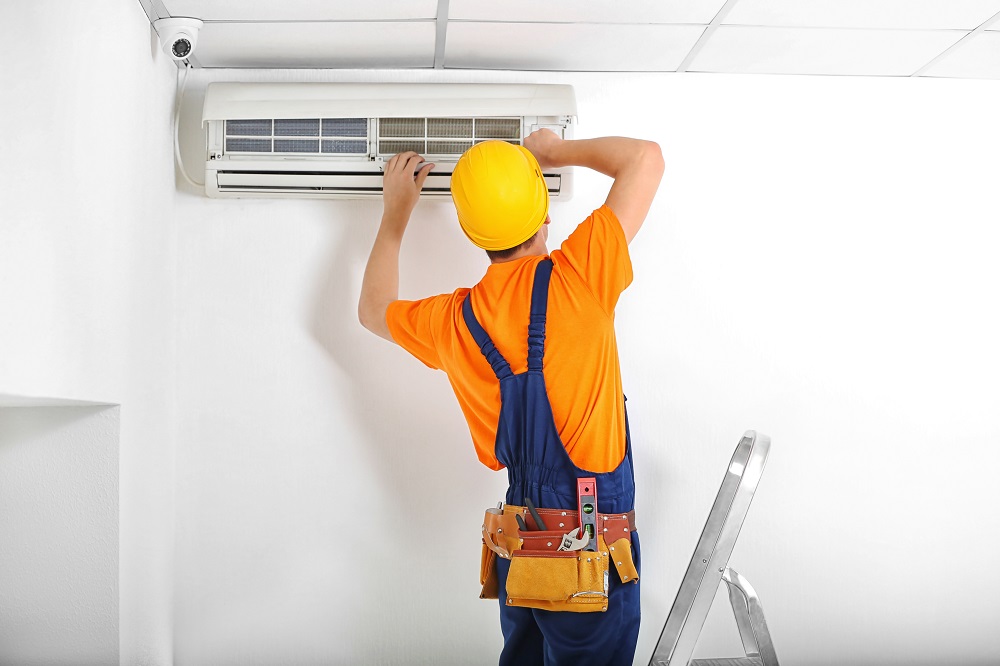Within the current world, in which sustainability has become a central focus, the role of HVAC systems in our homes and businesses cannot be overlooked. HVAC, which stands for heating, airflow, and air conditioning, is essential not only for comfort but also for energy efficiency and environmental responsibility. As we work to lower our carbon footprint, understanding how these systems work and how to care for them effectively gains greater importance.
For many, the concept of HVAC can seem daunting, especially for those just starting their journey into home improvement or energy efficiency. This guide aims to demystify HVAC systems, shedding light on their functionality, maintenance requirements, and the latest innovations that promote sustainability. From selecting the right system for your home to optimizing your thermostat settings, you will find practical tips that not only enhance your living environment but also contribute to a more sustainable future. Let's explore how HVAC technology is evolving and how it plays a crucial role in creating healthier and more energy-efficient spaces.
Comprehending HVAC Systems
HVAC stands for Heating, Airflow, and Air Conditioning. It encompasses a selection of systems intended to regulate indoor climate, ensuring comfort and air quality inside home and commercial spaces. HVAC systems function by adjusting the temperature, humidity levels, and air flow, establishing them vital for maintaining a welcoming environment, irrespective of outdoor weather conditions.
At the core of HVAC systems are 3 main components: heating systems, ventilation systems, and AC systems. Heating systems, such as heaters and heat exchangers, supply warmth during chillier months. Ventilation systems guarantee that stale indoor air is exchanged with fresh outdoor air, which is crucial for upholding good indoor air quality. Air conditioning systems lower the air to maintain spaces livable during warm weather, utilizing refrigeration cycles to extract excess heat from indoor environments.
Understanding how these systems operate is key to overseeing their efficiency and longevity. ac system , such as changing air filters and scheduling tune-ups, can prevent common issues and enhance functionality. By keeping up about HVAC technology and advancements, homeowners and business owners can make educated decisions about their temperature control needs, ultimately contributing to a more sustainable lifestyle.
HVAC Maintenance and Performance
Regular maintenance is crucial to keeping your HVAC system running efficiently. Easy tasks such as replacing air filters regularly, maintaining ducts, and inspecting for leaks can significantly enhance the effectiveness of your heating and cooling system. A well-maintained HVAC unit can function more effectively, leading to lower energy consumption and reduced utility bills. Homeowners are encouraged to arrange for professional inspections at least once a year to address any possible issues before they become expensive repairs.
Optimized operation also hinges on the proper use of your HVAC system. By knowing the optimal thermostat settings for different seasons, you can ensure that your system is not working harder than needed. During warmer months, adjusting your thermostat a few degrees higher can lead to significant savings. Likewise, in winter, maintaining a consistent, slightly cooler temperature can also help reduce energy costs while keeping your home comfortable. Implementing smart HVAC practices can enhance efficiency and contribute to a sustainable lifestyle.
Committing in regular maintenance and employing efficient usage strategies not only extends the life of your HVAC system but also advances environmental goals. Systems that operate efficiently emit fewer emissions and use less energy, which aligns with sustainable living principles. Therefore, being that site in maintenance and smart operation is essential for both your home and the planet.
Trends and Future Developments in HVAC

As the requirement for energy efficiency grows, the HVAC sector is witnessing a wave of innovations that emphasize automated solutions and ecological awareness. One of the most significant trends is the creation of automated HVAC solutions that link with smart home systems. These systems allow homeowners to adjust their heating and cooling from afar, enhancing energy use based on live data about occupancy and preferences. This degree of smartness not only improves convenience but also substantially reduces energy consumption, leading to reduced utility bills.
Another area of development is the rising acceptance of sustainable energy options in HVAC systems. Systems such as geothermal HVAC solutions, as well as solar energy HVAC systems, are becoming more accessible and efficient. These systems exploit natural resources to provide environmental comfort, significantly reducing reliance on traditional energy. Incorporating these green solutions works to reducing carbon footprints and encourages a movement toward a more eco-conscious lifestyle for homeowners and businesses similarly.
Moreover, advancements in air purification are transforming HVAC systems into essential tools for wellness and health. Enhancements in air filter technology, including HEPA filters and ultraviolet purification systems, are designed to elevate air conditions within homes. As concerns about airborne irritants and pollutants rise, these enhancements ensure that HVAC installations support a safer living environment, aligning with the growing awareness of air quality indoors’ impact on overall health.
